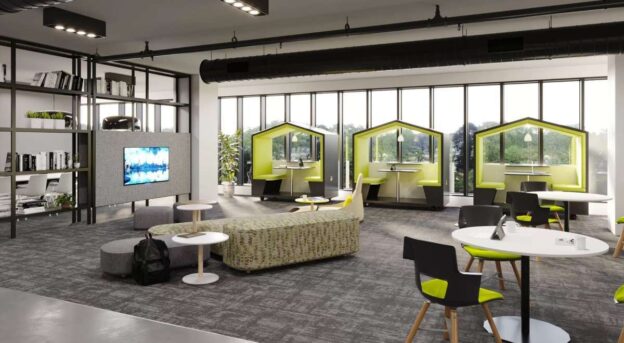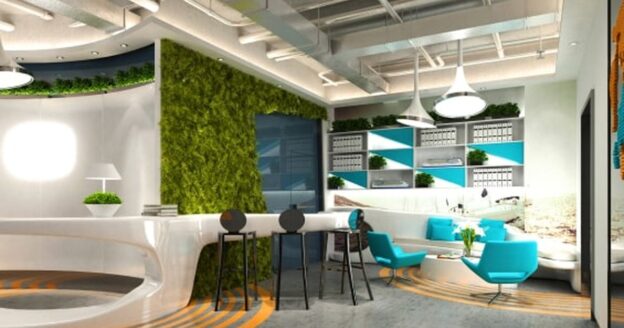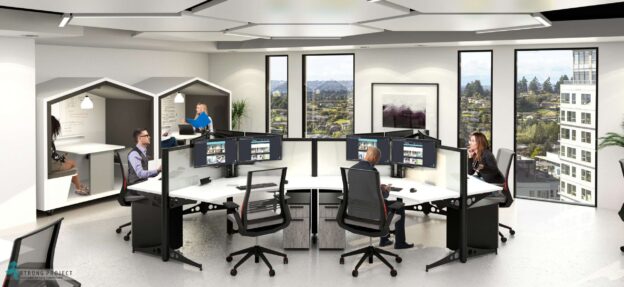The modern workplace has undergone a radical transformation in the past decade. As businesses prioritize employee well-being and productivity, the role of office design has expanded from being merely functional to fostering collaboration, innovation, and health. At the heart of this evolution lies the modular workstation—a dynamic solution shaping the future of office environments.
Understanding Modular Workstations
Modular workstations are versatile and customizable furniture systems designed to adapt to diverse office needs. Unlike traditional fixed setups, they offer the flexibility to rearrange and reconfigure spaces as business requirements evolve. These workstations are built for adaptability, often combining desks, storage units, and partitions that can be tailored to fit varying office sizes and styles.
How Modular Workstations Promote a Healthy Workspace
- Ergonomic Design
Modular workstations are crafted with ergonomics in mind, offering adjustable desks and chairs that align with the physical needs of employees. Features like sit-stand desks, lumbar-support chairs, and easily accessible storage reduce the risk of musculoskeletal issues and enhance comfort during long work hours. - Enhanced Collaboration
incorporating modular designs allows teams to collaborate more effectively. Workstations can be rearranged to suit specific projects or team dynamics, fostering better communication and creativity. This adaptability makes it easy to create spaces for brainstorming or quiet zones for focused tasks. - Improved Airflow and Lighting
Unlike rigid cubicles, modular systems often use open layouts that improve natural light flow and ventilation. Studies have shown that better lighting and airflow contribute significantly to employee mental and physical well-being, reducing stress and boosting productivity. - Stress-Free Personalization
Modular setups allow employees to personalize their workspaces. From adding plants to rearranging desk configurations, small touches help workers feel more at ease, which directly impacts their mental health and job satisfaction. - Hygiene and Easy Maintenance
The materials used in modular workstations are often designed for easy cleaning and durability. In a post-pandemic world, the importance of maintaining a clean and hygienic office cannot be overstated. Modular systems simplify disinfection and maintenance routines.
Why Modular Workstations Are the Future of Office Design
- Cost-Efficiency
Investing in modular furniture reduces long-term costs. As companies grow or change direction, modular systems can adapt without the need for a complete overhaul, saving money and resources. - Sustainability
Modular furniture aligns with the growing demand for sustainable office solutions. Many manufacturers use eco-friendly materials and design systems that minimize waste during manufacturing and reconfiguration. - Technological Integration
Modern workstations come with built-in cable management systems, charging ports, and smart desk options, seamlessly integrating technology into the workspace. This future-proofing ensures offices stay relevant in a tech-driven era. - Appealing Aesthetics
Gone are the days of dull, uninspiring cubicles. Modular workstations come in various finishes, colors, and styles, allowing businesses to create visually appealing offices that reflect their brand identity.
Conclusion
Modular workstations are not just a trend; they are a testament to the changing priorities of workplace design. By combining functionality, health benefits, and sustainability, they meet the demands of the modern workforce while paving the way for the future.
As businesses continue to embrace hybrid work models and prioritize employee well-being, modular workstations will remain the cornerstone of a healthy, adaptable, and efficient workspace. Whether you’re setting up a new office or revamping an existing one, investing in modular solutions is an investment in your team’s productivity and satisfaction.


